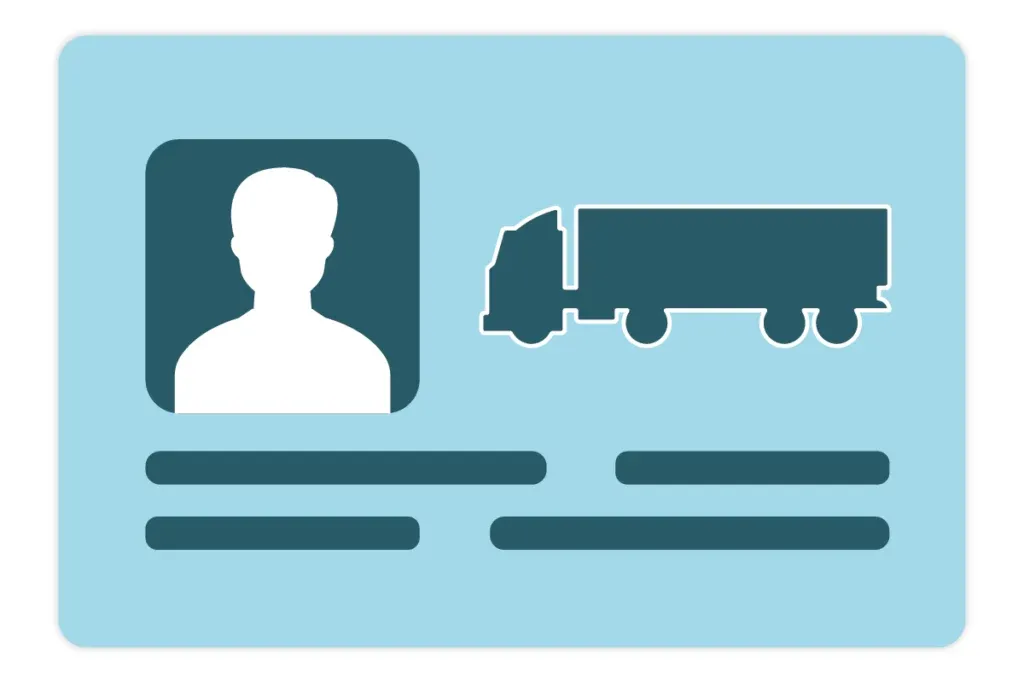Companies operating a vehicle for business purposes or commercial trade in the UK require an operator’s licence (O licence). The O licence certificate indicates compliance with the necessary regulations and fulfilment of the requirements to operate goods vehicles on roads. That means the operator or business has the necessary safety equipment and conducts regular checks to ensure the vehicle’s safety. Licences are required for all vehicles of over 3.5 tonnes used to carry goods or containers for business purposes.

O Licence Requirements
An O licence is a legal requirement for any business or individual that operates goods vehicles and trailers to transport goods for commercial purposes. Whether the goods are for local authorities or charitable organisations, the vehicles require a vehicle operator’s licence to transport the items on public roads. The operations may be:
- For hire and reward: The items or goods in the van or commercial vehicle are the property of a third party, not the vehicle operator. That means the operator leased the vehicle to transport goods in return for payment.
- On an own-account basis: The goods are the operator’s property through a subsidiary or a holding company, and the items are carried in connection with the commercial activities of the operator.
Operators require a vehicle O licence when they conduct commercial activities within the UK or in international territory. The vehicle combinations for which a licence is required are heavy goods vehicles, cars towing a trailer, commercial vans, and other light goods vehicles. Operators with mixed fleets must add all the categories and vehicle combinations to their operator’s licence. Failing to submit an O licence application and obtain licensing subjects the operator to heavy penalties.
In Scotland, Wales and England, the Traffic Commission of a Traffic Area issues the operator’s licence. Operators with multiple operating centres require a separate O licence for each Traffic Area.
What Are the Different Types of O Licences?
The common types of O licences in the UK include:
- Standard national licence: The licence allows operators to transport their goods within the UK or carry goods for others by hire. Even if the operator carries commercial goods occasionally, they must have an O licence. The operator and transport manager must meet the professional competence requirements to obtain a licence. The operator should also be established in Great Britain with business premises and access to at least 1 vehicle through ownership or hire.
- Standard international licence: The standard international licence is a legal requirement for operators carrying commercial goods on international journeys.
- Restricted O licence: This licence is for UK operators who carry goods only in connection with their businesses (not for hire or reward) or company subsidiaries. A restricted O licence is for ‘own account’ operation, and holders can only carry their goods. The licence can also be used for international journeys in European and EU member states.
An interim licence can be granted if an operator is waiting for a response to their initial licence application. The Traffic Commissioner can grant an interim licence when there is an urgent need to commence operations during the 9-week processing time of receiving a full licence.
The O licence requirements to meet before obtaining an operator’s licence include the following:
- Permission: Applicants should prove that they have permission to use the operating centre for business operations. If the operator owns the land, proof of permission is optional, but proof of ownership is always necessary.
- Maintenance contract: Operators need a maintenance contract from a reputable commercial vehicle service agent who can advise them on maintenance frequency and costs.
- Certificate of professional competence: A certificate of professional competence is required for operators applying for a standard national or international licence. That means the operator or driver should hold the relevant CPC qualifications.
- Financial information: The applicant should prove to the commissioner that they have sufficient financial resources to support the O licence application. The financial information includes 3 months’ bank statements and proof of any financial facilities supporting the transport operations. Sometimes, audited accounts are required.
How to Apply for an O Licence
When applicants meet all the requirements above, they can apply for a new operator licence or change their existing one. After filling out the O licence application form, the applicant should pay the required fee based on the licence type that they want.
The application form usually contains a section for creating an advert and provides the requisite information that should be filled in. The advert must be in a local paper, with reasonable circulation, and placed in public notice sections. In the advert, the operator should provide information on the proposed operating centres. Since the advertisement is attached to the application, an operator needs to complete the O licence application within 21 days from the newspaper’s publication date.
The operator needs to designate a transport manager when applying for a standard national or international O licence. Information on the transport manager must be provided in the application. After providing the relevant information, an operator waits for 7 weeks to receive a notification on the outcome of their application.
Conclusion
Individuals planning to start a logistics and transportation company should apply for an O licence before commencing operations to avoid penalties. Goods vehicles cannot be used on the roads without a proper operator’s licence. An O licence proves professional competency to operate the goods vehicles and employ a professionally qualified person.
Sources:
- https://logistics.org.uk/compliance-and-advice/road/operator-licencing/information-about-operator-licensing
- https://www.gov.uk/guidance/goods-vehicle-operator-licensing-guide
- https://www.nidirect.gov.uk/articles/goods-vehicle-operator-licensing-licence-applications
- https://www.transportsfriend.org/operator-licensing/quick-o-licence-guide/
Disclaimer
This content is provided for informational purposes only and is not meant to be an endorsement or representation by FleetGO.com or any other party. This information may contain inaccuracies or typographical errors, despite our efforts to ensure accuracy. FleetGO.com accepts no responsibility or liability for any errors or omissions, and is not responsible for the contents of any linked website or any link contained in a linked website. Please refer to our full disclaimer for more details.


